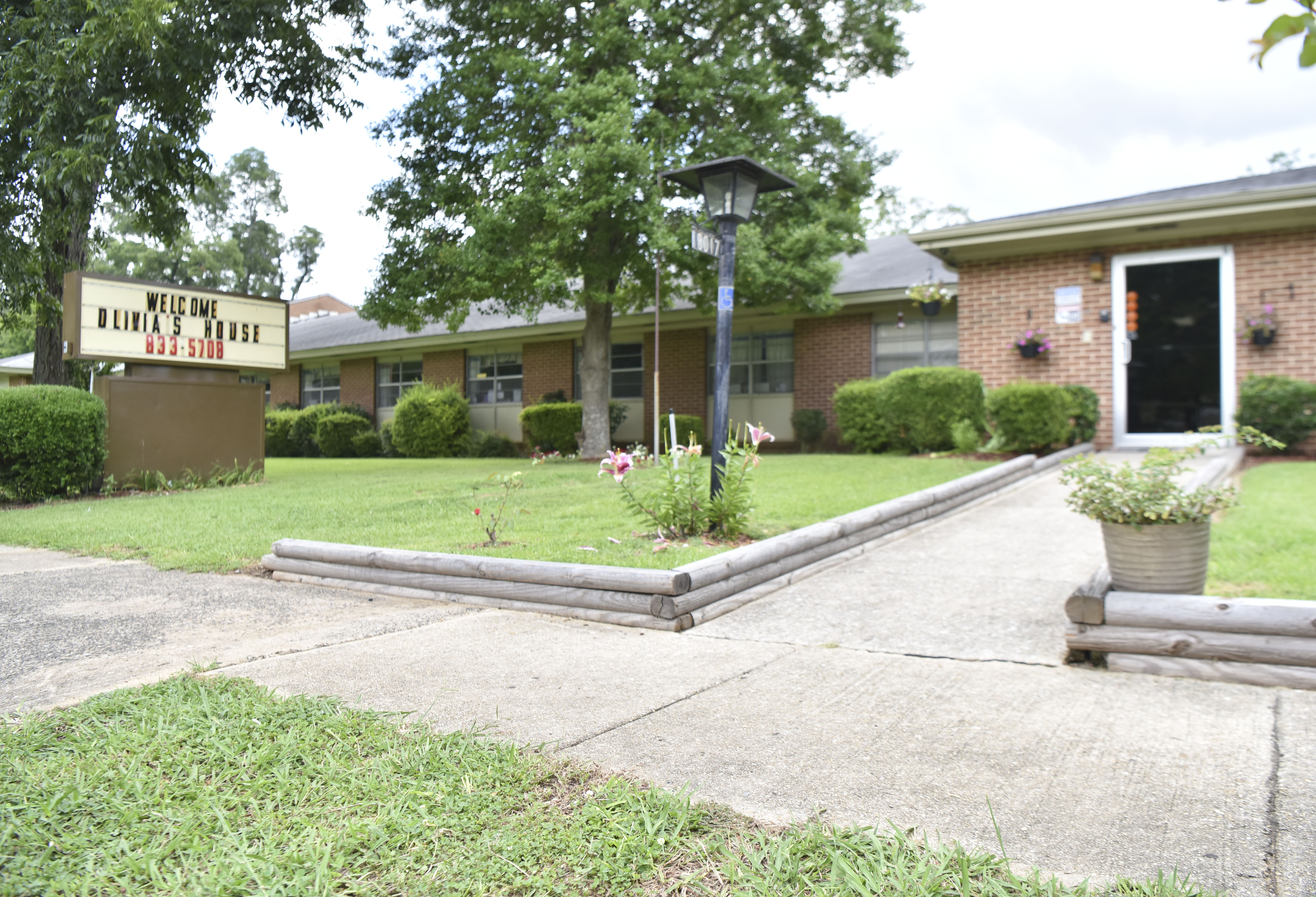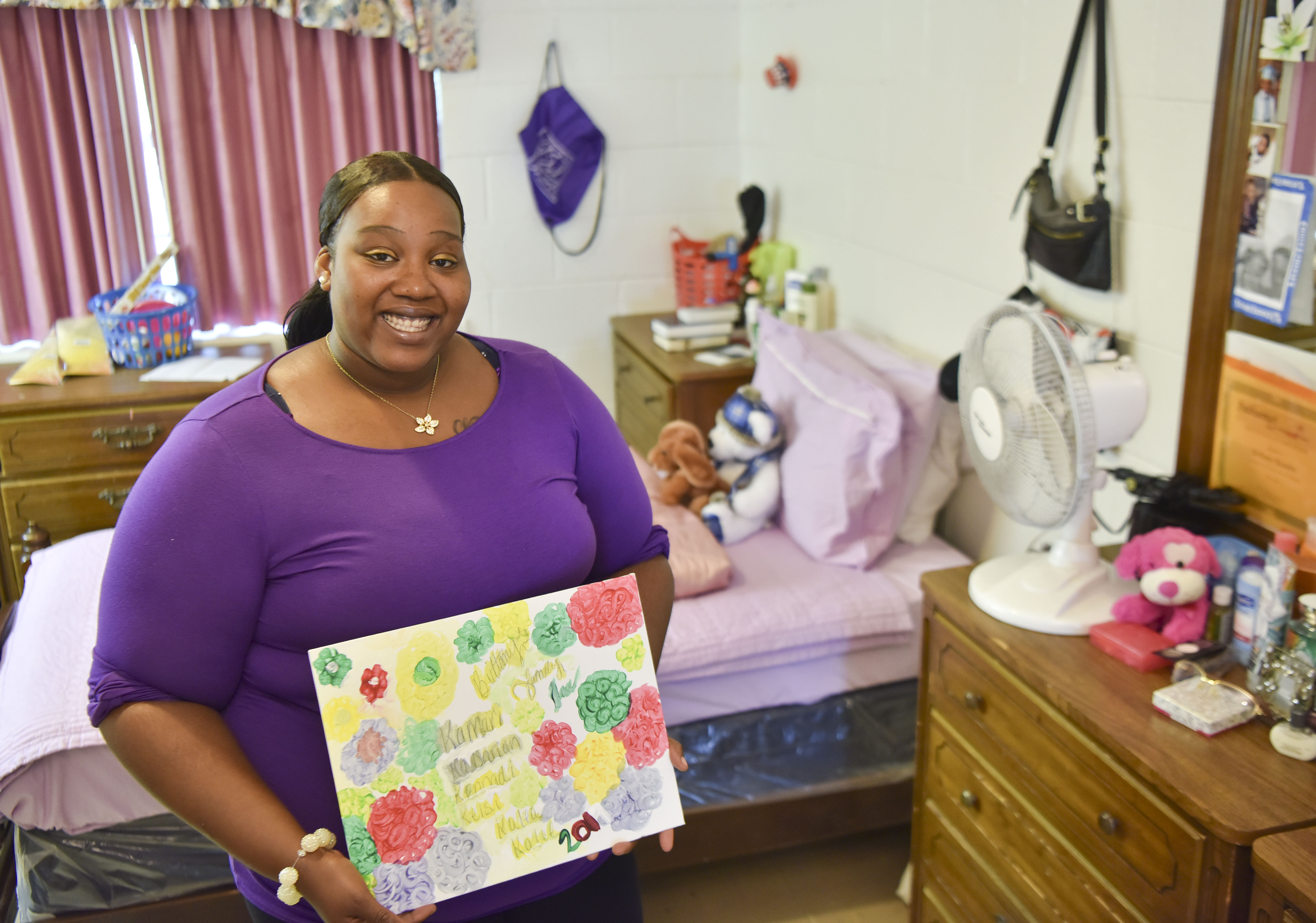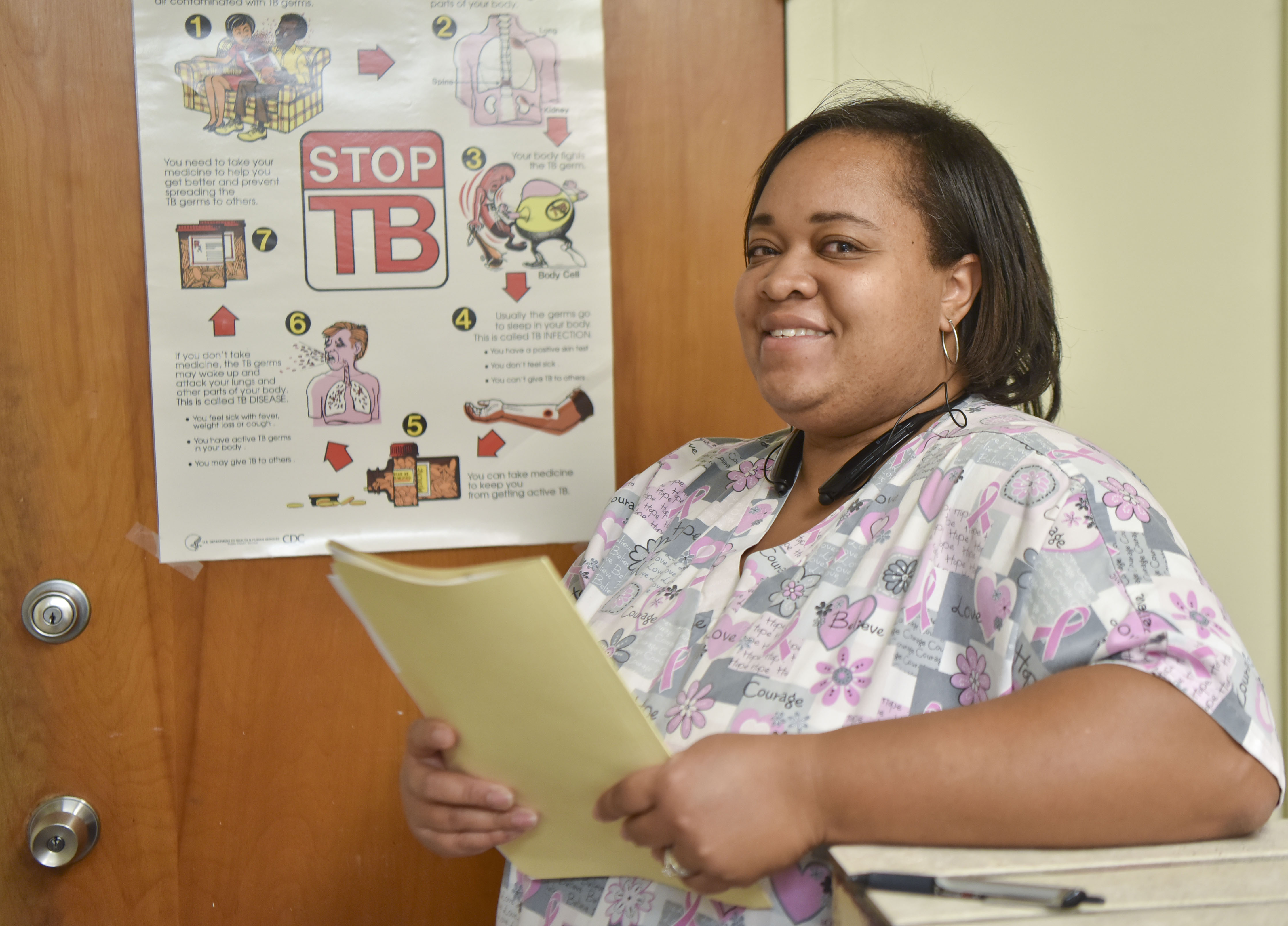
By Ariel Worthy
The Birmingham Times

Brittany Moseley and Amanda Reed are best friends. They met recently at Olivia’s House, a 17-room inpatient facility in East Lake that provides care for chemically dependent women and their children.
“I have a painting [inside my dorm room] I made representing me and my six children,” said Moseley, who is staying at Olivia’s House for the second time.
The first time, she was there for drug dependency. This time, she is there because she recently had twin daughters and wants to learn how to parent. When Moseley’s babies were born, no drugs were found in their systems or hers: “I just thought I should work on myself to build better parenting and coping skills,” she said.
Meanwhile, Reed came to Olivia’s House for the first time in March—after 18 years of drug use.
“I was very stubborn for the last 18 years,” she said. “I refused to admit to myself that I was an addict.”
Reed, who has three children—ages 12, 9, and 2—ended up in a methadone clinic and was kicked out because she wrote bad checks. This led her back to using heroin and caused her family to stop speaking to her. A judge ordered Reed to Olivia’s House to straighten out her life.
Moseley and Reed have begun the journey toward sobriety along with other residents at the center.
‘Life-Changing’
Olivia’s House is named in honor of Olivia Shell, a victim of domestic abuse and violence who lost her life as are a result of being stabbed 57 times by a man from whom she had separated. The facility is the first residency program for women and children in the state of Alabama.
“If a woman comes in with a child, she can’t have a roommate. [Generally,] there are two women per room. If they have children with them, though, then there is only one woman per room,” said Mary Puckett, clinical director for the Alcohol and Drug Abuse Treatment Centers Inc. (ADATC), which operates and provides services at Olivia’s House.
Moseley’s said her first visit to Olivia’s House in 2013 was life-changing: “I was learning how to cope with the drugs, … learning signs of relapse. I have been clean since I came back [in April], but I just felt I need more … recovery.”
She also is learning a lot about being a parent.
“They’ve been teaching me how to cope with my kids when they are returned to my custody, teaching me how to discipline them. There are more ways to discipline your kids other than spanking them,” said Moseley, whose children are in Department of Human Resources (DHR) custody.

Family Is Key
Better parenting means both mothers and children need attention, said Olivia’s House Children’s Services Coordinator Enid Calvert.
“The kids need to be here because a lot of them have been abused and mistreated,” she said. “Often, it’s a situation in which the children were trying to fend for themselves while the mom was out or living with someone who was not capable was taking care of them. The kids have a lot of closet issues.”
At Olivia’s House, mothers acquire skills that bring them in sync with being a responsible parent, said Calvert, who works closely with the mothers and children.
“They learn things they really didn’t know: how to bathe children, [for instance], or that brothers and sisters should not share a bed,” she said. “The [mothers usually] know more about discipline than reward when they come in here, so they learn that spanking should not be a form of punishment.”
Quality time is key, as well, Calvert said.
“They don’t know how to bond, that they have to give each child individual time,” she said. “It’s important for them to stop what they are doing to pay attention to the child.”
Keeping parents involved with their child’s education is also part of the process, so parents must attend PTA meetings.
Treating the Whole Person
Olivia’s House does “holistic treatment.”
“We treat the whole person, we don’t just focus on addiction, and that’s it,” Puckett said. “We also focus on mental health, cognitive ability, spiritual health, physical health. The whole woman is how we define holistic treatment.”
Yoga classes and public speaking classes will soon be added, she said: “We also have peer-support specialists who come in, … [and] we take care of all of their medical and dental needs.”
When it comes to spiritual matters, the women make their own choices.
“If they want to go to church on Sunday, they go to church,” Puckett said. “If they want to go to the meditation room, they do that. They figure out what’s necessary for them spiritually. If they are Muslim, Buddhist, they can do whatever they want.”
On average, women stay a minimum of three months at Olivia’s House.
“The absolute least amount of time we like them to stay is 90 days,” Puckett said. “We’d like them to stay six months to a year. Many of them stay nine months to a year, and that’s just because it really takes that long for them to get their feet on the ground. Changing behavior isn’t easy, and it takes time. We’d like for them to stay so they can change those addictive behaviors.”
When it’s time for residents to move out, staff members assist with housing.
“We don’t just release them and say, ‘OK, bye.’ We find them a place to go,” Puckett said. “Many of them go home. For those who don’t have a home to go to, we find them a place.”
Olivia’s House provides ongoing support, as well.
“Some of the women are doing really well,” Puckett said. “Some of them have come back here to work or volunteer. Some have started school. One is taking classes at [the University of Alabama at Birmingham].”
Calvert said, “If they ever need us for anything, they can always call us.”

After Olivia’s House
Reed said her relationship with her children is improving.
“They’re in separate places, but they’re with my family,” she said. “For my kids to make me a Mother’s Day card and tell me they love me and miss me, and to tell me that God loves me … If your daughter can love you after all the crap you put her through during your addiction, it’s time to wake up.”
Reed said she is grateful for Olivia’s House and its staff.
“I love this way of life … wouldn’t trade it for anything,” she said. “I wouldn’t want to go back and use. I know if I did it would be suicide.”
Moseley said she feels comfort knowing that her Olivia’s House family is there to help her.
“When I go back out there, I’m going to have my kids, somewhere to stay,” she said. “It feels good to be one more day clean every time I wake up. We think clearly, we don’t have to wonder where our next hit is going to come from. We don’t want our kids to look at us any differently.”
Moseley said she hopes that women who are struggling can get the help they need—like she has.
“What was I thinking to choose drugs over everything in my life? It feels so good to know we don’t have to live like this anymore,” she said. “We have a new beginning, a new life.”
To read Amanda’s story, click here.




